Guillermo del Toro strains every sinew to bring his dream film to life, steeping it in religious symbolism and the history of art, cannily restitching Mary Shelley’s narrative and aiming grandly high. He can’t sustain Frankenstein’s heartbeat over two-and-a-half hours which try to justify a lifetime’s devotion to the subject. There are, though, marvellous passages where the ages of reason and magic meet.
We begin in Arctic wastes, where an icebound ship encounters broken Victor Frankenstein (Oscar Isaac) and his seemingly bestial Creature (Jacob Elordi). Each tells their tale. Young Victor (Christian Convery) suffers the cruel discipline of his Mitteleuropean surgeon dad (Charles Dance) and the early death of his mum (Mia Goth). Moving to Britain to study, Isaac’s adult Victor bows to neither medical boards nor God as he seeks to scientifically conquer death. This Prometheus of the charnel house struts and sneers, the ripely camp edge to Isaac’s performance matching the vigorous pulp energy of the Creature’s creation. Cristoph Waltz’s louche arms dealer supplies battlefield corpses and unlimited funds. His daughter Elizabeth (coolly strange Mia Goth again, oedipally, pictured below right) checks Victor’s ambition with her own intellect and more developed morals. Her quest is for something purer and away from the ordinary world, which she will find not in Victor, but his Creature.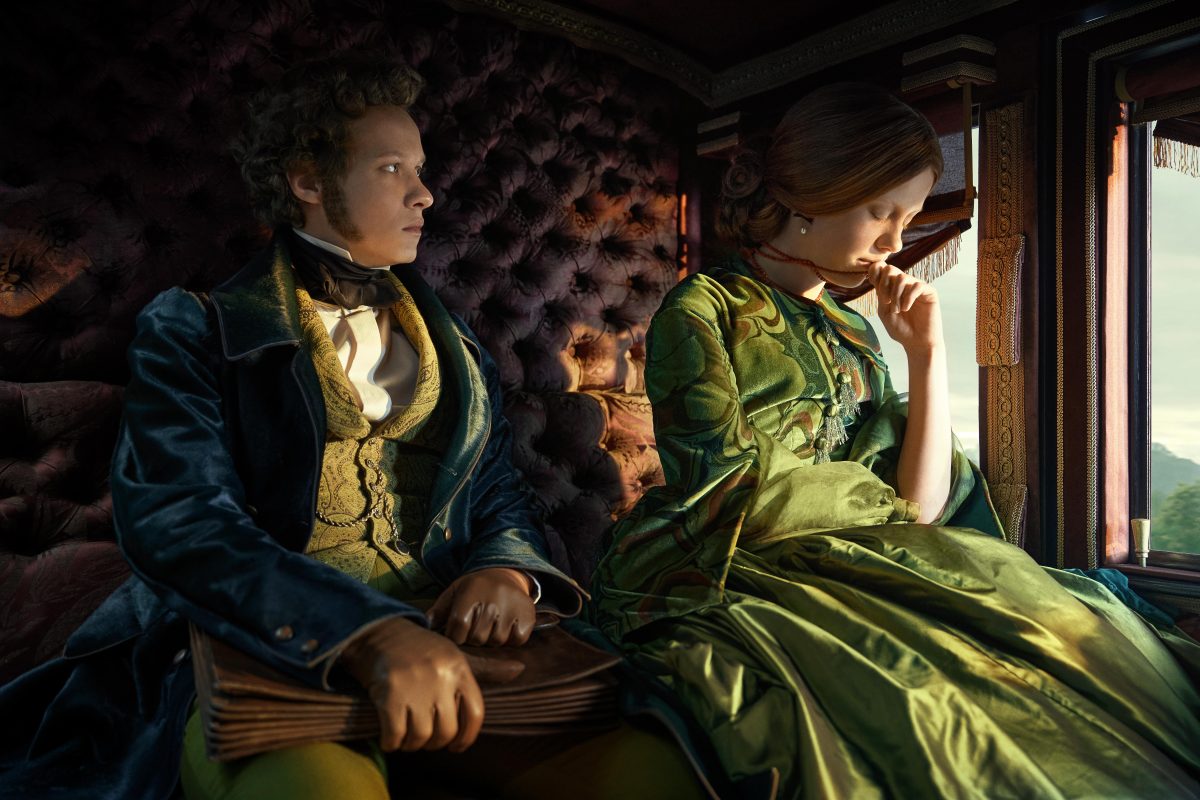 When lightning strikes this patchwork corpse, he comes to life as an innocent Adam, his face a sutured beauty. Jacob Elordi was Elvis in Sofia Coppola’s Priscilla, and powerfully moving as The Narrow Road to the Deep North’s wartime Burma Railway surgeon. His Creature declines from gawkily overgrown child to caged, beaten pet as Victor regrets his impetuous experiment. Del Toro makes him Christ-like too, repeatedly crucified in a fallen world while trying to understand his father’s plan.
When lightning strikes this patchwork corpse, he comes to life as an innocent Adam, his face a sutured beauty. Jacob Elordi was Elvis in Sofia Coppola’s Priscilla, and powerfully moving as The Narrow Road to the Deep North’s wartime Burma Railway surgeon. His Creature declines from gawkily overgrown child to caged, beaten pet as Victor regrets his impetuous experiment. Del Toro makes him Christ-like too, repeatedly crucified in a fallen world while trying to understand his father’s plan.
His intelligence grows exponentially, and he narrates the film’s second half. Compared to the velocity of Victor’s obsession and its lightning-strike climax, though, this is a dawdling, undead bildungsroman, doggedly crammed with familiar scenes. The Creature’s endless weeks as unseen help to a blind peasant were done better by Mel Brooks. Despite del Toro’s noble emphasis on stop-motion and other analogue film crafts, the CGI wolves here are woeful.
Elsewhere Tamara Deverell’s production design and Kate Hawley’s costumes make it a Versailles of a movie, a Marie Antoinette cake, lush and extravagant in its feats of craft but emotionally detached by gaudy excess. Dreams of devil-red angels suggest Mexico’s Day of the Dead, daubed in the blood-pumping, sensual palette which distinguishes del Toro from Tim Burton’s black Gothic rock.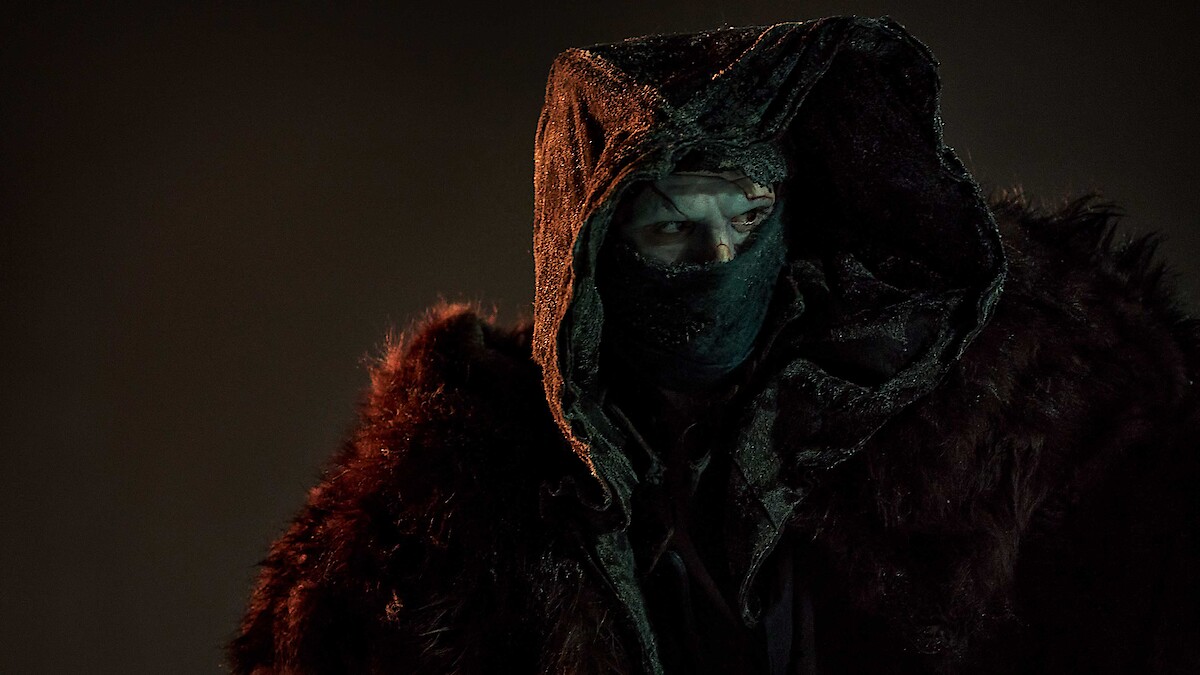 Del Toro once envisaged his Frankenstein as a series, believing a single film couldn’t encompass all he needed to say. He’s anyway said much of it already in the long years of waiting. The primal tragedy of a son pining for a flawed father-creator was more poignant in Pinocchio, Gothic decadence infused Crimson Peak’s ferocious study in scarlet, science and psychopathy, and The Weight of Water loved a misunderstood monster.
Del Toro once envisaged his Frankenstein as a series, believing a single film couldn’t encompass all he needed to say. He’s anyway said much of it already in the long years of waiting. The primal tragedy of a son pining for a flawed father-creator was more poignant in Pinocchio, Gothic decadence infused Crimson Peak’s ferocious study in scarlet, science and psychopathy, and The Weight of Water loved a misunderstood monster.
The Frankenstein story was an escape from and extrapolation of del Toro’s childhood Catholicism, offering a more sympathetic saint and martyr, and Christian forgiveness and mercy movingly seal his highly personal final act. It’s a frequently impressive adaptation with new thoughts and encyclopaedic 19th century themes, fusing industrial war slaughter with body-snatching and Victor’s Romantic poet pose, as if insisting on Shelley’s literary worth. It is, though, weighed down by excess baggage the director couldn’t bear to throw overboard. Best seen in Netflix’s cursory cinema release, it can’t escape Karloff’s shadow from almost a century ago, any more than Peter Jackson’s similarly cherished King Kong could replace its beloved source. Del Toro the devotee wouldn't want it to.

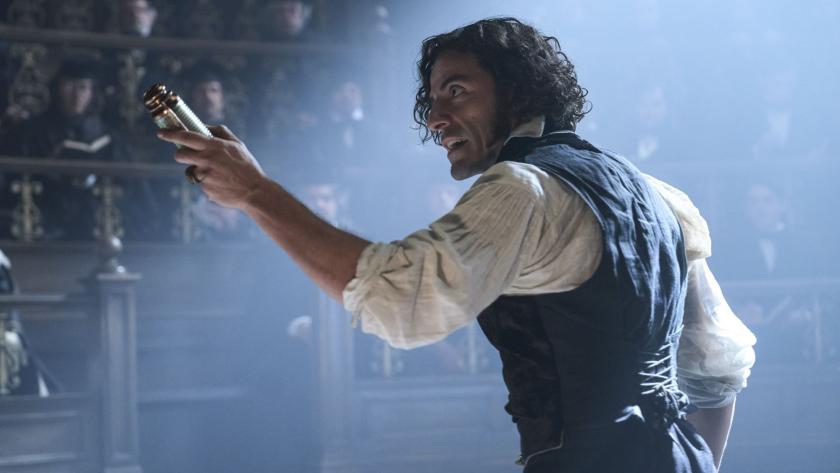

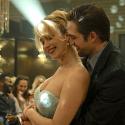
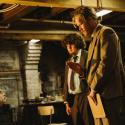





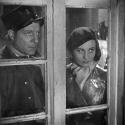



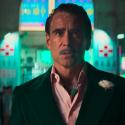
Add comment